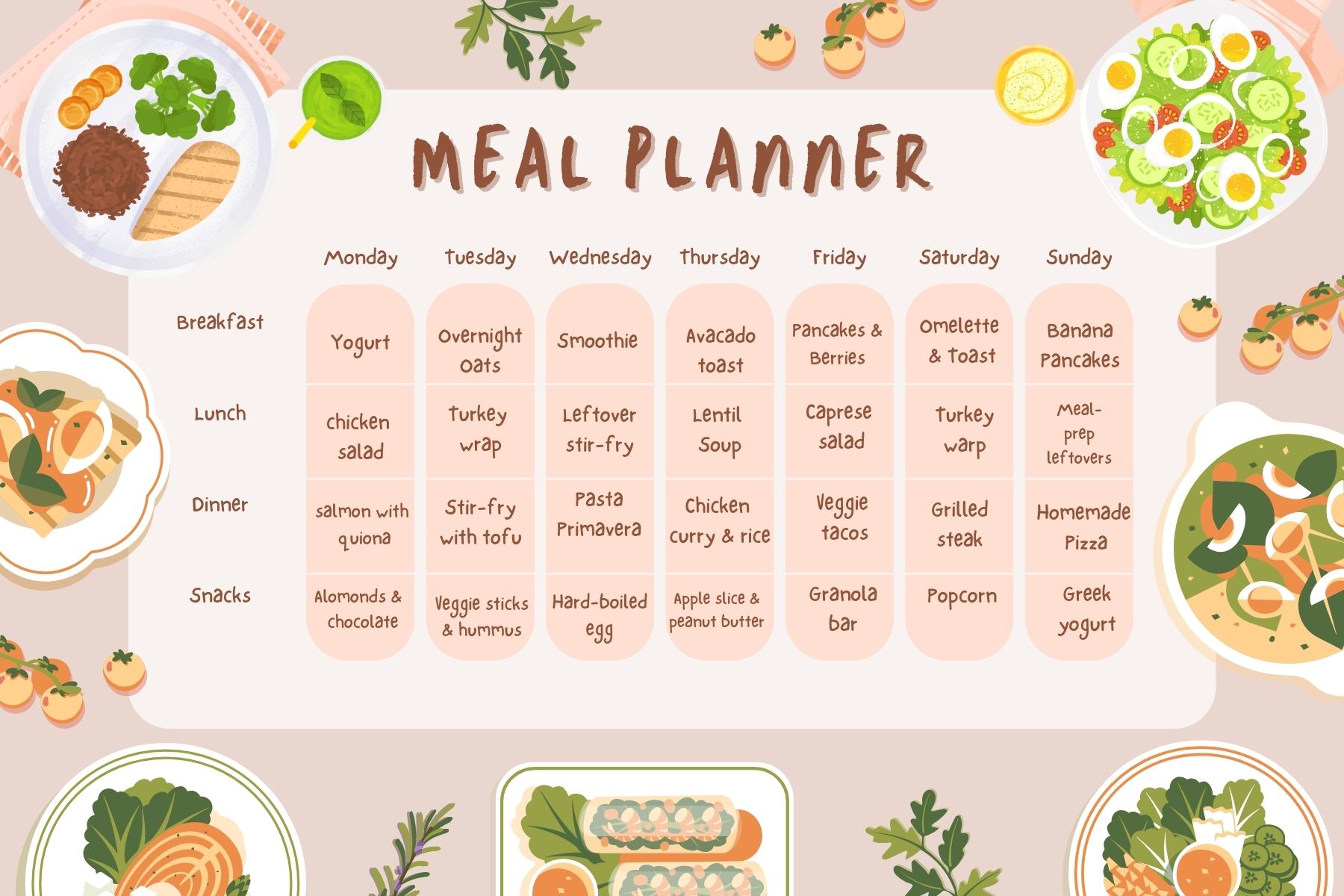What is a Weekly Meal Plan?
A weekly meal plan represents the organized system which determines your food arrangements for the upcoming seven days. The process requires choosing meals and their components before creating a shopping list of all necessary ingredients. A healthy meal plan maintains dietary variety that suits your needs while staying on schedule.
A weekly meal plan allows you to achieve weight loss goals and improve your eating habits while reducing mealtime stress.
Why Create a Weekly Meal Plan?
A weekly meal plan has many advantages, including the following:
Time-Saving: Know every day in advance what to cook or prepare, which saves time.
Healthier Eating: Keeps you on target with your diet and nutrition.
Less Stress Mornings and Evenings: Know precisely what you'll be making for dinner.
How to Create a Weekly Meal Plan That Works
Before starting meal planning you should determine your goals and needs.
Before starting meal planning you need to determine if you will follow keto, vegan or Mediterranean diet.
Do you have food allergies or preferences to consider?
How much time do you have to cook each day?
Your plan should be adjusted according to your lifestyle and health needs after you understand your goals..
Plan for Variety
The prevention of monotony requires the inclusion of various cuisines together with different cooking methods and flavor profiles. A well-rounded meal plan should include the following:
Proteins: Chicken, fish, tofu, lentils.
Carbs: Rice, quinoa, potatoes, whole-grain bread.
Veggies: Spinach, broccoli, carrots, seasonal produce.
Fats: Avocado, nuts, seeds, olive oil.
Map Out Your Week
The structured weekly approach simplifies your daily life.
Breakfasts: Smoothies and overnight oats serve as convenient breakfast options because they require little preparation time.
Lunches: You can prepare salads ahead of time or use leftover dinner food for your lunches.
Dinners: Most people seek balanced meals after work based on their remaining energy levels for cooking.
Snacks: Healthy snack options include fruits together with yogurt and nuts.
Use an app or planner to write down your ideas for better organization.
Choose Recipes Wisely
Choose recipes based on:
Level of experience.
Items in stock.
Time taken to prepare.
You can navigate this process without excessive spending by selecting meals that share basic ingredients.
Batch Cooking and Prep
Devote your weekend or days off to prepare meals in bulk. The process allows you to create fundamental ingredients such as roasted vegetables and cooked grains and proteins which can be substituted throughout the week.
Keep it Flexible
Life happens, and plans can change. Plan your weekly meals with flexibility as your main consideration. You should have backup food options such as frozen meals and fast recipes for times when you are in a hurry.
Weekly Meal Plan Example
| Day | Breakfast | Lunch | Dinner | Snack |
|---|---|---|---|---|
| Monday | Greek yogurt & fruit | Grilled chicken salad | Salmon with quinoa | Almonds & dark chocolate |
| Tuesday | Overnight oats | Turkey wrap | Stir-fry with tofu | Veggie sticks & hummus |
| Wednesday | Smoothie bowl | Leftover stir-fry | Pasta primavera | Hard-boiled egg |
| Thursday | Avocado toast | Lentil soup | Chicken curry & rice | Apple slices & peanut butter |
| Friday | Pancakes & berries | Caprese salad | Veggie tacos | Granola bar |
| Saturday | Omelette & toast | Buddha bowl | Grilled steak & veggies | Popcorn |
| Sunday | Banana pancakes | Meal-prep leftovers | Homemade pizza | Greek yogurt |
Conclusion
A weekly meal plan serves as an effective tool to establish order in your life while promoting health and saving money. The following procedures will help you create a plan that matches your goals and stays motivating throughout the week. Start with small steps while being adaptable and enjoy discovering different recipe and flavor combinations. Meal planning will eventually become automatic so your life will gain structure and your eating experiences will become more enjoyable.

